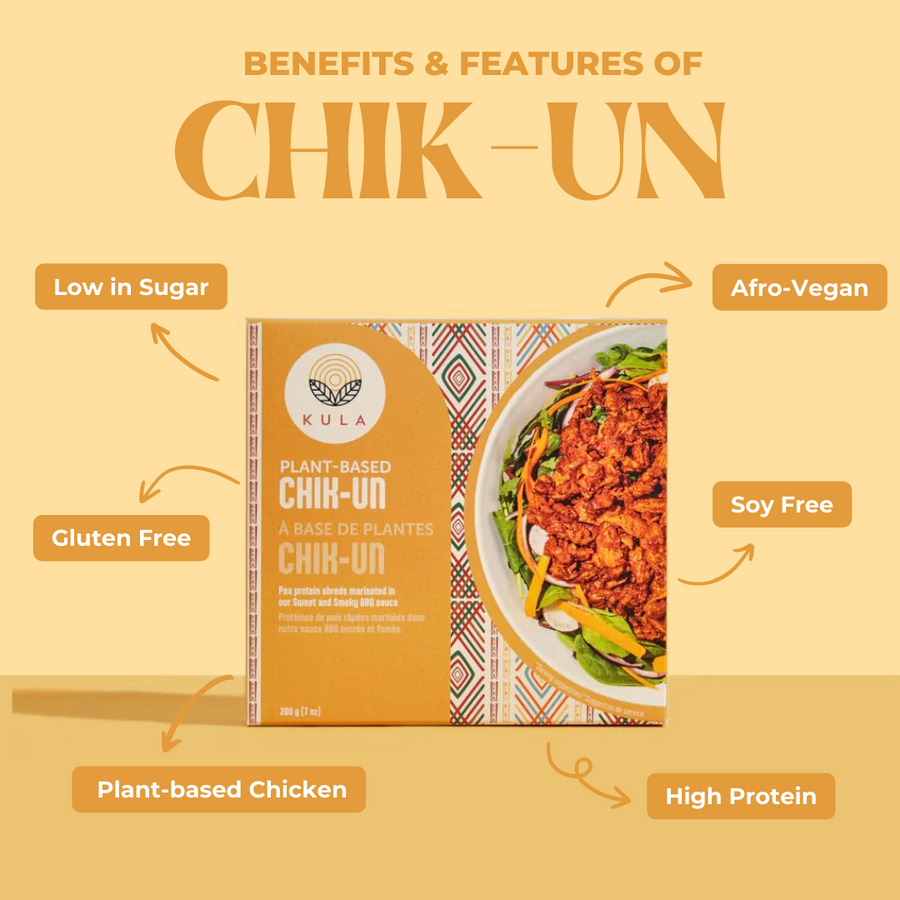Everything About Healthy Food: Advantages of Taking On Plant Based Alternatives
The conversation bordering plant-based diets has actually gained considerable attention in recent times. Numerous individuals are checking out the prospective health and wellness benefits, nutritional advantages, and ecological impacts related to these dietary options. As individuals become extra knowledgeable about their food's influence on wellness and sustainability, inquiries emerge concerning the usefulness of embracing such a lifestyle. What particular adjustments can one expect, and just how might these options reshape not only personal health and wellness but likewise the world's future?
Comprehending Plant-Based Diets
Although many individuals connect plant-based diet regimens mainly with vegetarianism or veganism, these diets can include a variety of eating patterns that prioritize entire, minimally refined plant foods. Such diet regimens typically include fruits, vegetables, entire grains, vegetables, nuts, and seeds, while limiting or removing animal items. This adaptability allows people to customize their nutritional selections according to dietary needs and personal preferences. Some might embrace a largely plant-based diet plan while still periodically consuming meat or dairy products, often described as a flexitarian strategy. The emphasis stays on including even more plant foods, which can bring about a diverse selection of flavors and meals. Recognizing these different interpretations of plant-based consuming is vital for valuing its ease of access and charm in modern food culture.
Wellness Perks of Plant-Based Foods
The wellness benefits of plant-based foods are substantial, providing a nutrient density advantage that sustains overall health. Study shows that these foods can boost heart wellness and play a vital function in efficient weight monitoring. By incorporating more plant-based alternatives, individuals may enhance their dietary selections and promote long-term health.
Nutrient Density Benefit
Nutrient density plays an important duty in the health advantages of plant-based foods, making them a compelling selection for those seeking a well balanced diet. Plant-based foods, such as fruits, veggies, beans, nuts, and whole grains, are frequently rich in essential vitamins, minerals, and antioxidants while being reduced in calories. This high nutrient thickness permits people to consume less calories while still meeting their nutritional requirements. In addition, these foods are packed with nutritional fiber, promoting gastrointestinal wellness and assisting in weight monitoring. By including nutrient-dense plant-based choices, consumers can improve their total health and wellness, sustain their body immune systems, and reduce the danger of chronic illness. Ultimately, the nutrient density of plant-based foods underscores their importance in a health-conscious lifestyle.
Heart Wellness Renovation

Weight Administration Support
In enhancement to promoting heart wellness, a plant-based diet can considerably assist in weight monitoring. This dietary method highlights entire foods such as fruits, vegetables, vegetables, nuts, and whole grains, which are normally lower in calories and higher in fiber contrasted to animal-based products. The high fiber content helps boost satiety, lowering general calorie consumption. Plant-based diets are typically rich in vital nutrients while low in undesirable fats, making it less complicated to maintain a healthy and balanced weight. Research study indicates that people that adopt a plant-based lifestyle often tend to have lower body mass indexes (BMIs) and experience even more effective weight management contrasted to those who take in meat-heavy diets. Consequently, accepting plant-based alternatives is a critical option for effective weight management
Nutritional Worth of Plant-Based Ingredients
Plant-based ingredients are rich in essential nutrients, using a diverse selection of vitamins, minerals, and antioxidants that add to overall wellness. A contrast of protein sources exposes that while animal products are usually seen as remarkable, lots of plant-based choices supply ample protein and other useful substances. Recognizing the dietary worth of these components can assist individuals make notified dietary options.
Vital Nutrients in Plants
Nutrient-rich active ingredients located in plants supply a varied range of necessary minerals and vitamins that add significantly to general wellness. These active ingredients are rich in vitamins A, C, and K, which support immune feature, vision, and blood clotting, respectively. Furthermore, plants provide essential minerals such as potassium, magnesium, and calcium, crucial for heart health, muscular tissue function, and bone toughness. The visibility of fiber in plant-based foods help food digestion and advertises a healthy and balanced digestive tract microbiome. Antioxidants, located abundantly in veggies and fruits, help combat oxidative anxiety and decrease inflammation. In see here now addition, lots of plant foods are low in calories yet high in nutrients, making them an excellent choice for those looking for to keep a healthy and balanced weight while ensuring perfect nutrient consumption.
Comparing Protein Resources
Protein sources differ considerably in their dietary accounts, with plant-based active ingredients using special advantages. Unlike animal proteins, which typically include saturated fats and cholesterol, plant healthy proteins often tend to be reduced in these undesirable elements. Legumes, nuts, seeds, and whole grains are abundant in necessary amino acids, fiber, vitamins, and minerals. Lentils offer high healthy protein material alongside substantial iron and folate, while quinoa is a complete protein, supplying all nine important amino acids. In addition, plant-based healthy proteins are usually gone along with by antioxidants and phytochemicals that sustain overall health. The change to plant-based protein resources not only boosts nutritional consumption however additionally lines up with lasting dietary techniques, minimizing ecological effect and promoting long-term wellness benefits.
Environmental Influence of Plant-Based Eating
As recognition of climate adjustment grows, lots of individuals are checking out sustainable dietary selections that can significantly decrease their ecological footprint. Plant-based consuming has actually emerged as a substantial factor to decreasing greenhouse gas discharges, which are largely related to animals manufacturing. The growing of fruits, vegetables, grains, and vegetables commonly requires fewer resources, such as water and land, compared to animal farming. In addition, plant-based diet regimens can lead to decreased logging, as less land is required for grazing animals or expanding pet feed. By shifting in the direction of plant-based choices, customers can sustain biodiversity and advertise much healthier environments. On the whole, embracing plant-based eating not only benefits personal health but likewise represents a crucial step toward environmental sustainability and conservation efforts.
Conquering Common Misconceptions
While several people identify the advantages of a plant-based diet regimen, numerous mistaken beliefs usually hinder them from totally welcoming this way of life. A typical belief is that plant-based diets lack enough healthy protein; nonetheless, countless plant resources, such as vegetables, nuts, and tofu, offer sufficient protein. Additionally, some assume that this diet regimen is pricey, when in reality, staples like beans, rice, and seasonal veggies can be rather cost effective. One more mistaken belief is that plant-based eating is overly limiting, whereas it actually uses a diverse selection of foods and flavors. Lots of fret that a plant-based diet regimen may lead to shortages, yet with proper preparation, individuals can get all required nutrients, consisting of minerals and vitamins, while taking pleasure in a wide range of delicious dishes.
Tips for Transitioning to a Plant-Based Way of living
Making the shift to a plant-based way of living can be an improving experience, though it frequently needs some guidance to browse the first modifications. Initially, individuals are motivated to begin slowly, including more fruits, vegetables, legumes, and whole grains right into their meals while minimizing meat and milk consumption. Dish planning is vital; preparing a regular food selection can help alleviate the adjustment and protect against final undesirable selections. Exploring new recipes and cooking techniques can likewise boost the experience and preserve excitement regarding plant-based eating. In addition, signing up with support system or areas can give motivation and share important suggestions. Lastly, remaining notified regarding nourishment warranties well balanced dishes, stopping shortages while cultivating a healthy and balanced, satisfying plant-based lifestyle.
Delicious Plant-Based Dish Ideas
Checking out scrumptious plant-based meal ideas can motivate individuals to accept a more healthy diet regimen. One popular choice is a passionate quinoa salad, featuring cherry tomatoes, cucumber, and a vibrant lemon-tahini dressing. One more fave is a tasty lentil stew, loaded with carrots, celery, and fragrant herbs, best for a comforting dinner. For this content morning meal, over night oats made with almond milk, chia seeds, and topped with fresh berries offer a healthy beginning to the day. In addition, a dynamic veggie stir-fry with tofu and a selection of colorful veggies can be a quick yet satisfying meal. Creamy avocado salute on whole-grain bread, sprayed with seeds and spices, offers an easy yet savory treat. These dishes display the selection and splendor of plant-based eating.

Regularly Asked Concerns
Can a Plant-Based Diet Give Enough Healthy Protein?
The concern of whether a plant-based diet can supply enough protein is usual. Various resources, consisting of legumes, nuts, seeds, and whole grains, can meet healthy protein requires effectively, sustaining a nutritious and well balanced diet for people.
Are Plant-Based Diets Appropriate for Children?
The suitability of plant-based diets for kids depends on mindful preparation. Appropriate nutrients must be ensured, consisting of minerals, healthy proteins, and vitamins. With appropriate advice, such diet regimens can support healthy and balanced growth and advancement in youngsters.
How Do I Eat in restaurants on a Plant-Based Diet regimen?
Eating in restaurants on a plant-based More about the author diet plan entails looking for dining establishments with varied menus, requesting alterations, and exploring vegan-friendly choices. Planning in advance and connecting dietary preferences can improve the dining experience while keeping dietary choices.
What Are Typical Irritants in Plant-Based Foods?
Usual irritants in plant-based foods consist of soy, gluten, nuts, and seeds - Gluten Free BBQ Sauce. People following a plant-based diet ought to understand these allergens and check out labels very carefully to stay clear of damaging reactions and guarantee risk-free usage
Can Plant-Based Diets Assist With Weight Loss?
Research study indicates that adopting a plant-based diet may facilitate weight management as a result of its typically lower calorie density and greater fiber content. This combination can enhance satiety, helping people handle their caloric intake efficiently. Many individuals associate plant-based diet regimens mostly with vegetarianism or veganism, these diet regimens can incorporate a large variety of consuming patterns that focus on entire, minimally processed plant foods. Nutrient density plays an important role in the health benefits of plant-based foods, making them an engaging selection for those looking for a balanced diet plan. Plant-based diet regimens have been shown to considerably improve heart wellness, as they often contain elements that sustain cardiovascular function. In enhancement to promoting heart health, a plant-based diet regimen can substantially help in weight monitoring. A common belief is that plant-based diet regimens lack sufficient healthy protein; however, numerous plant resources, such as vegetables, nuts, and tofu, provide enough protein.
Comments on “How to Transform Family Dinners Using Plant Based Beef Without Sacrificing Flavor”